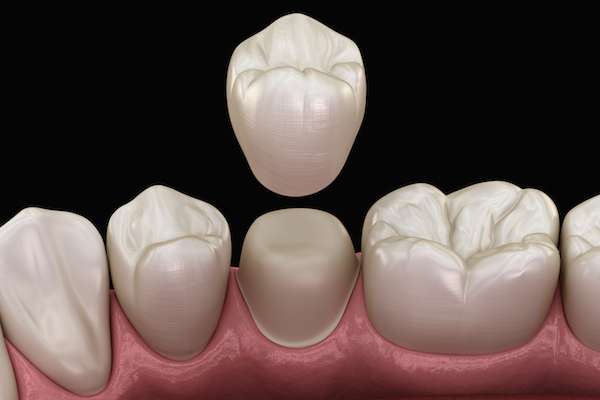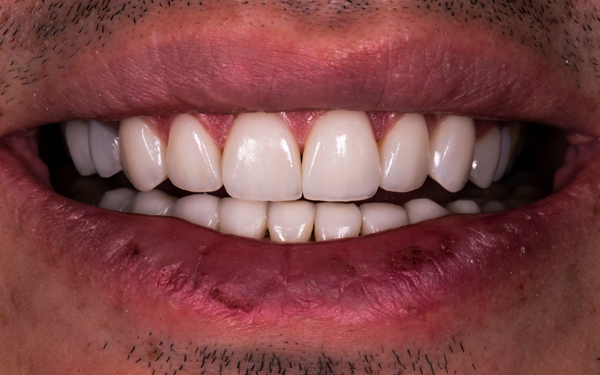What To Ask Your General Dentist When Preparing for a Crown
 If a general dentist recommends a dental crown, there are a variety of reasons why. Crowns can be used for cosmetic corrections as well as for protection and support. These dental restorations may seem intimidating to those who have never had one, but they do not have to be. Here are some questions to ask a dentist so that the experience can go as smoothly as possible.
If a general dentist recommends a dental crown, there are a variety of reasons why. Crowns can be used for cosmetic corrections as well as for protection and support. These dental restorations may seem intimidating to those who have never had one, but they do not have to be. Here are some questions to ask a dentist so that the experience can go as smoothly as possible.
Preparing for a crown
Most crowns require two visits to install a permanent version. This first visit involves an examination and preparation of the tooth, including X-rays and impression taking. The patient receives a temporary crown while the permanent one is being made, which is then installed at the second visit. There are some important considerations for the patient, especially while waiting for the permanent crown.
How should a patient care for a temporary crown?
Temporary crowns are typically made of acrylic or stainless steel and are not meant to last like permanent ones. They are also not as secure, so patients must pay special attention to the crowned tooth while waiting for the second visit. A general dentist may provide a list of foods to avoid as well as advise ways to lessen the amount of chewing done with the crowned tooth. Some food that can cause problems include caramel and gum.
How should a patient care for a permanent crown?
Permanent crowns do not require any special care beyond basic oral hygiene. There are some things that patients should keep in mind, however. Crowns are not indestructible, especially those made of porcelain. They can suffer from cracks or chips just like a tooth. While minor damage can be repaired, major damage can require replacement.
Crowns can also loosen and allow infection-causing bacteria into the space between the crown and tooth. Sometimes when they loosen, they can slip off. In both cases it is imperative that patients contact a general dentist as soon as possible. Crowns can also be sensitive to hot or cold foods. Patients are encouraged to seek help from the dentist in this case as well.
Are there different types of crowns?
Traditionally crowns were made of gold and some still are, but these are not as common due to the high price. Dentists today generally use ceramic or porcelain crowns, which provide the closest match to natural teeth. A hybrid porcelain-metal or resin crown may be used where ceramic or porcelain is unsuitable.
How long do crowns last?
Crowns can last as long as 15 years. Patients who bite their fingernails and grind or otherwise wear down teeth can expect a shorter lifespan. Good oral hygiene, which includes using mouthwash and floss, is critical to extending the lifetime of a crown. Barring extreme damage-causing accidents, patients can expect crowns to last a minimum of five years.
Conclusion
It may seem intimidating to get a dental crown, but receiving one is a common procedure. Patients should feel comfortable asking a general dentist about how to prepare for the appointments and care for their crown.
Request an appointment or call Queens Family Dental at 718-954-9425 for an appointment in our Flushing office.
Recent Posts
Many patients visiting a general dentist do not fully understand the use of dental X-rays. Patients may wonder if this type of imaging is completely necessary, and it is important to understand the risks and benefits of the procedure. Dental X-ray exposure is safer than ever before, and when patients are knowledgeable about the procedure,…
Tooth extraction frequently occurs in the office of a general dentist for a variety of reasons, including:Bacterial decayAccidental breakageOvercrowdingImpactionMost patients are more concerned about the gap the tooth leaves behind than its fate outside their mouths. An extracted tooth usually takes one of the following paths, depending on whether the dentist or the patient claims…
A general dentist often focuses on the importance of oral hygiene and how it can help the overall health of patients. There are many patients who are unaware of the impact that oral health can have on the heart’s health. The following explains how poor oral hygiene may be connected to the development of heart…


